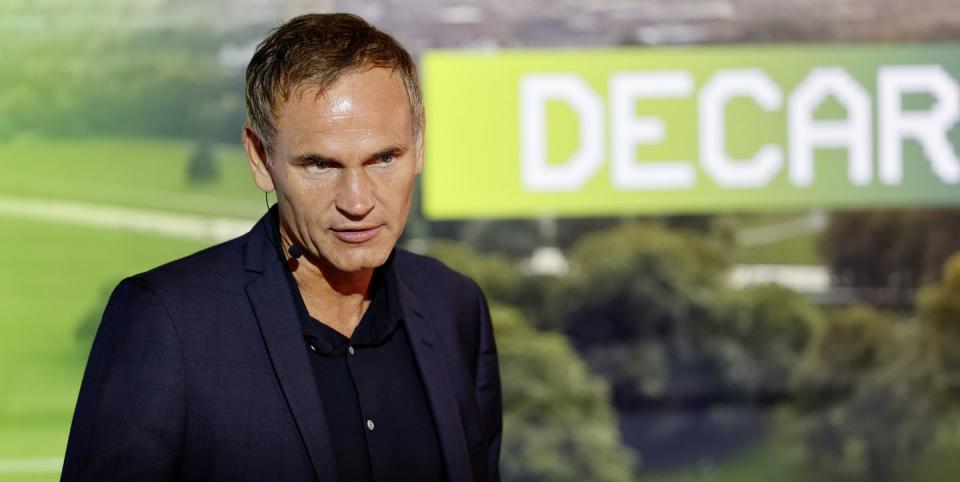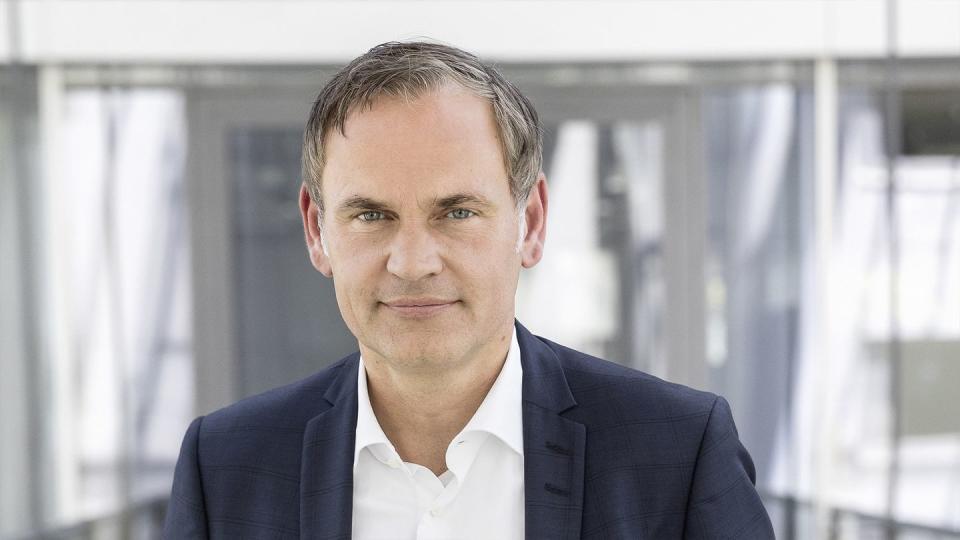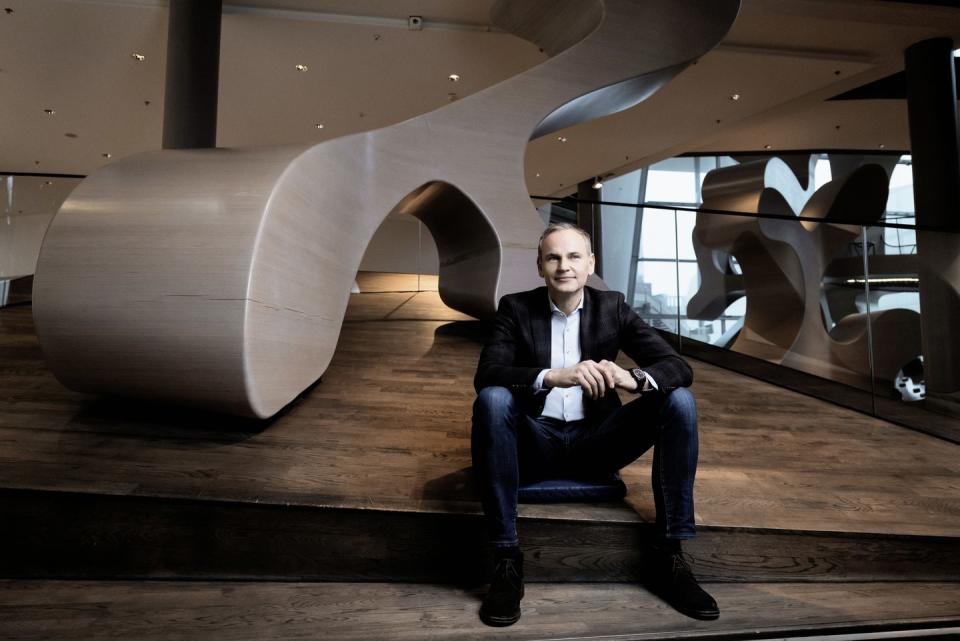Four Challenges New VW CEO Oliver Blume Will Face

Porsche CEO Oliver Blume will take over the role VW Group CEO from Dr. Herbert Diess on September 1, after the latter's ouster was announced last week.
Blume has been with the VW Group since 1994, and has worked at Audi, SEAT, Volkswagen, and Porsche in that time, most recently as Porsche CEO since 2015.
The incoming CEO will inherit issues ranging from delays at the CARIAD software division, Volkswagen's waning influence in China, a brewing energy crisis in Germany that could hike manufacturing costs, and Tesla's growing market share in Europe.
The sudden ouster of VW Group CEO Herbert Diess, who will leave the automaker on September 1 of this year, may have caught some industry observers by surprise late last week, even though dark clouds had been gathering over Wolfsburg for some time. On one hand, Diess' scheduled departure feels abrupt and oddly timed, taking place in the midst of several brewing crises with more on the horizon. On the other, a number of crucial programs at several brands had been approaching a breaking point, at least signaling the possibility of an impending change in leadership.
Incoming Group CEO Oliver Blume, who has been with the automaker since 1994, will inherit several pressing issues that, combined with pandemic-related disruptions, would have overwhelmed anyone in his soon-to-be predecessor's position, with a number of brewing storms still on the horizon. In five weeks Blume will be in the unenviable position of dealing with these issues first hand, while attempting to hedge against greater challenges out of his control.
Blume's first challenge will be getting Volkswagen's in-house software division CARIAD back on track. Delays in this unit have invariably been cited as the proximate cause of Herbert Diess' ouster, but developed largely on the periphery of his immediate field of vision, in an area that had not been VW's strong suit. Specifically, delays at CARIAD have reportedly pushed back a number of important Porsche, Audi, and Bentley EVs by years, well into the second half of the decade, and include the electric Porsche Macan.

The consensus on CARIAD at the moment appears to be that it may have been launched too late, letting Tesla dominate software development in EVs for too long, and is now forced to play catch up without necessarily having the tools or the institutional agility to do so. Diess, to his credit, recognized this structural challenge at VW, and Tesla's leadership in this sphere, but faced plenty of headwinds in tackling this issue in the midst of other shorter term crises.
Blume's second challenge will involve EV development and roll out in the broader sense in the coming years, including the launches of key models that will be able to compete with Tesla and others. This will likely be the single most daunting challenge for the automaker in the coming years, having lost precious time in getting more EVs off the drawing board—not to mention combating the optics of having Tesla open an EV plant just outside of Berlin. The pace of EV development and production has already been dented by the pandemic and the ongoing chip shortage, and there is still little indication of either crisis abating in the next 12 to 24 months.
Blume's resume includes the development and launch of the Porsche Taycan, which now outsells the 911 itself, giving him an early and unlikely win in a segment that did not appear to be Porsche's strong suit at first blush. But now he will have more than just EVs from one automaker to worry about, with Tesla's market share in Germany and elsewhere serving as a sobering reminder of time and opportunity lost by a less nimble automaker.
Blume's third challenge in the coming months and years will include keeping the Volkswagen Group relevant in China.
VW was the first foreign automaker to set up a joint venture in the Middle Kingdom, arriving in 1984. Its influence and lineup in the country now is not what it was even five years ago. Several more recent Chinese automakers, with EVs in their lineups, are set to upstage a number of foreign auto giants that had dominated the scene these last few decades, but are now evidencing a lack of ability to keep up with rapidly evolving tastes in this crucial automotive consumer market.
VW has been able to launch several EVs in joint ventures with local automakers, including the ID.4 and the ID.6, but its position in the Chinese market is still seen as precarious by some after decades of holding claim to a large share of the market. The China of 10 years ago now appears to be at least 20 years in the past, with VW having been unable to keep much of its market share amid a tide of new EV makers, and a rapidly growing lineups of other automakers.
"China may have needed VW 40 years ago," one automotive industry analyst told Autoweek recently, "and it may have still needed it 10 years ago, but now it does not. And that goes for a number of western brands that are still there. They are all losing position or are about to."

Blume's fourth challenge is expected to materialize and demand attention on a much more compressed time scale than others, with the question of continued gas and oil exports from Russia to the EU expected to reach a crisis stage soon. The current disruptions in the supply of natural gas to Germany's industry, as well as other EU member states, have already affected production by several industrial giants, with continued political instability between Germany and Russia expected only to accelerate in the coming months as Europe approaches the heating season.
While a number of German industrialists are engaged in quiet diplomacy to stabilize the situation and avoid disruptions, many industry observers still expect natural gas costs to grow once again, with little to hedge against further disruption or a complete shutdown by Russia that could last weeks or months. A planned 90% reduction in the purchase of Russian oil by the EU, meanwhile, is expected to be phased in by the end of the year, and could pose further challenges to the transportation and manufacturing sectors.
The automaker's supervisory board has signaled its support for Blume, who has held posts at Audi, Volkswagen, SEAT, and Porsche in his tenure at VW AG, and who assumed the role of Porsche CEO in 2015. But he will inherit the reins of an automaker in the midst of its biggest transition in decades, in a world that now effectively bears little resemblance to the past decade.


 Yahoo Autos
Yahoo Autos 